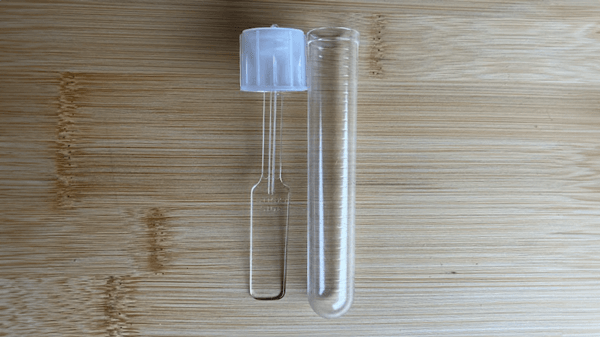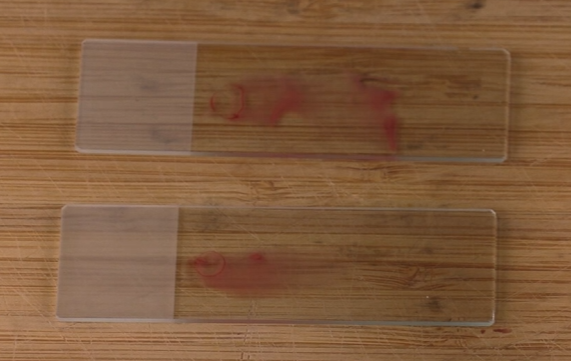
The Most Accurate Blood Tests for Parasites in Humans
There are many different ways to test for parasites. Evidence of parasites can be found in stool samples, urine examined under a microscope, or by analysis of our blood’s immune system chemicals.
But in some situations, a blood test is the most accurate and only practical option for finding certain parasites. To help you understand when to use blood parasite testing, we’re going to explore the best and the worst blood parasite tests, as well as some reasons to choose a blood parasite test over non-blood parasite tests.
Quick facts about parasite blood tests:
- The best blood test for you depends on what parasite you’re looking for. Different parasites require different blood testing techniques.
- Blood antibody tests are the most popular blood tests for parasites, but they can’t always distinguish between current and past parasite infections. Antibody blood tests are most useful within a few weeks of parasite infection.
- Ova and parasite blood tests use powerful magnification to directly observe blood parasites like malaria, filariasis or Trypanosoma.
Types of Blood Tests for Human Parasites
There are 4 different types of blood parasites tests that are commonly used. We give an overview of each test below, with links to in-depth articles about each test.

1. Serology Antibody Blood Test
Serology blood testing looks for our immune system’s chemical response to parasites. This is done by looking for antibodies chemicals in our blood. Antibody chemicals are unique enough that they can be recognized as a response to a specific parasite.
Strengths of Serology Testing
The best feature of serology is that you can test your blood, and it will tell you if your immune system has responded to a non-blood parasite. Serology can see if our immune system has reacted to a parasite in our intestines, our blood or even our urine.
Weaknesses of Serology Testing
Unfortunately, serology testing can’t always tell the difference past exposure to a parasite, and current infection of a parasite. Also, your serology test needs to check specifically for each type of parasite. So if the antibody test doesn’t look for a parasite, you won’t have know if you’ve been exposed to that parasite.
Serology Rapid Diagnostic Tests
It’s also possible to have rapid diagnostic tests (RDTs) for some parasites. For instance, malaria has some great field testing options like this one. RDT malaria tests are very useful when travelling in a an area with malaria, that has limited to access malaria testing facilities. The W.H.O has is a great explanation of how the RDT tests work.
Full article: serology parasite testing

2. Blood Smear Parasite Test
This test is also known as the peripheral blood smear (PBS), or the blood ova and parasite (blood o&p)
The blood smear parasite involves carefully smearing some blood onto a slide, and then a technician (ideally a parasitologist), examines it under a high powered microscope. There are both thin film smear and thick film smear versions of this, and some test processes will add a Giemsa stain to make it easier to identify different types of parasites.
When The Blood Smear Test Is Useful for Finding Parasites
The peripheral blood smear test is most useful for finding parasites that live in our blood. Malaria is the most important parasite found in the blood via this microscopy method. But there are other parasites that can be found with this test, such as:
- Filariasis
- Babesia (associated with Lyme disease)
- Trypanosoma (Chagas – sleeping sickness)
- Plasmodium (malaria)
- Toxoplasmosis gondii (limited evidence that it can be found in a blood smear, antigen tests are the most typical method for detecting toxoplasmosis)
Beyond finding parasites, the blood smear parasite test can also find hematological disorders. Hematological examination can be a way to find certain deficiencies or potential diseases. Our thin film blood parasite test looks for parasites and potential hematological disorders.
Learn More About The Blood Smear Test:

3. Complete Blood Count
The Complete Blood Count (CBC) test is a routine blood test to see if any part of your blood looks abnormal. And even though the complete CBC does not tests for parasites, indirect evidence of parasites may be revealed by this test. Depending on how high or low you test for certain things, this routine blood work can justify further testing for parasites.
A few key parts of the CBC blood test that may be indicate parasite problems:
- Eosinophils: Abnormally high amounts of eosinophils white blood cell may indicate a parasitic worm infection, but they could also indicate sever allergies.
- Basophils: Elevated basophils may also indicate a parasite infection. But they could also be elevated during allergies.
- Hemoglobin (HGB): One potential reason for low hemoglobin may be anemia caused by a parasite infection. But diet and many other factors may be cause anemia.
How Useful Is The Complete Blood Count For Detecting Parasites?
This test will never, ever, directly show that you have a parasite infection. But because people routinely take the CBC test for other medical reasons, it’s useful to know when your CBC test may justify parasite testing.
Read our full article: Do Parasites Show Up In A CBC Test?

4. Live Blood Analysis (LBA)
Live blood analysis (LBA) uses high-resolution dark field microscopy to look for parasites. It’s practitioners claim they can observe a wide range of parasites…unfortunately, there is not much evidence to back these claims, and LBA is an extremely controversial blood test for parasites.
Some websites about LBA claim they can see specific parasites in the blood, even though those specific parasites spend their life in the intestines, not inside our blood.
Other potential issues with live blood analysis include:
the lack of standardized protocols and guidelines for conducting Live Blood Analysis
the potential for misdiagnosis and incorrect treatment
While there may be some competent practitioners out there, Parasites.org recommends almost any other blood parasite test over live blood analysis.
Our full article about live blood analysis.

Bonus Blood Parasite Test: DNA/PCR Blood Parasite Test
DNA blood parasite testing is currently used in some niche situations like Toxoplasmosis. And in those specific situations, you can find parasite tests that use PCR to analyze parasite DNA in your blood. There may also be rapid diagnostic PCR tests available.
Read our full article about parasite PCR/DNA testing
Should You Test for These Parasites With A Blood Test?
Now let’s go through a few practical examples of good ways to look for specific parasites. We’re going to see if a blood parasite test makes sense, or if there are better options.
- Toxoplasmosis: A serology blood test is the way to go when testing for this parasite. But, there is limited evidence that toxoplasmosis can be found in a blood smear.
- Intestinal Worm Parasites: While a serology blood test could technically test for a worm, a high quality at-home intestinal parasite test would be the gold standard for finding most intestinal parasite infections.
- Malaria: The gold standard for testing for plasmodium (malaria) is the peripheral blood smear. But in certain situations, and serology rapid diagnostic test would be a good choice.
- Babesia: I was able to find some research on Babesia being found in a blood serology test, but, it looks like the blood smear test is the best test for it.
Frequently Asked Questions
What is the best parasite test?
The best parasite test depends on your unique situation. As someone who lives in downtown Denver, I don’t have to worry much about blood parasites. Intestinal parasites are much more likely to be a problem when I am swimming in rivers or lakes in the mountains…or from contact with other people. I generally think our gut parasite test, or the gut parasite test upgraded with a bacteria swab are the most useful, most of the time. For someone living in the USA, there are only very niche situations where I would prefer a blood parasite test, or perhaps a urine test over an intestinal parasite analysis. To get a broader view of non-blood parasite tests, read our article about the accuracy of the most common parasite tests. But of course, please work with your doctor to figure out what parasite test may be best for you.
Where can I buy a serology parasite antibody test?
Serology tests are most available from labs like Labcorp, Quest Labs, or your local doctor. In practice, serology tests aren’t used very often. My favorite 2 serology tests for parasites are for Toxoplasmosis (eg. for pregnant women around cats), and Toxocara (which may cause blindness, and is designated a neglected parasite disease in the USA). But of course, please work with your doctor to figure out what parasite test may be best for you.
